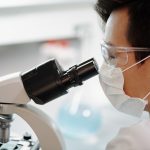Uncovering common myths about forensic science
The reality of a role as a forensic scientist can differ greatly from how it is portrayed on popular crime TV shows like CSI: Crime Scene Investigation – as touched upon in our recent article on the subject. With so many on-screen depictions of what a forensic investigator is supposed to be doing, it can be difficult to separate the truth from the fiction. Our aim is to uncover some of these common myths and hopefully attempt to show that the actual job can indeed be a worthwhile career for someone with the right characteristics.
The impact of forensic DNA on catching criminals
Over the last 15 to 20 years, the commercialisation of advancements in forensic technology has meant that modern testing techniques are now well-publicised. The work of Professor Sir Alec Jeffreys and the discovery of inherited variation in human DNA during the mid-1980s – which allowed the University of Leicester professor to invent DNA fingerprinting – has helped to create a whole new field of forensic DNA. His first case actually managed to exonerate the prime suspect in the murder of two teenagers and ensure an innocent man walked free! The real killer, Colin Pitchfork, was later identified and convicted through the use of DNA fingerprint testing.
However, while some of these case-breaking methods make for great crime scene drama and exciting moments in court rooms, the reality of those professionals carrying out these highly scientific roles on a day-to-day basis can be somewhat different.
How is CSI lacking in realism?
Programmes like CSI can easily exaggerate the truth of these relatively new (within the last 30 years) and accessible techniques and this means that forensic science can easily be misinterpreted when it comes to real life. This has been one of the major criticisms of the show.
In the processing of crime scenes, characters will often be involved in detective work as well as the gathering of scientific evidence, with the activities simplified for TV. Needless to say, this would be considered entirely inappropriate as it would compromise the impartiality of the evidence collected.
It would also be impractical and incredibly time-consuming for one person to carry out the roles of detective, forensic examiner and crime scene examiner. And yes, some detectives may also be registered as crime scene investigators, but the roles would rarely be blurred like it is on TV, as these job roles are far more specialised.
One thing is for sure: no forensic scientist would ever be allowed to speculate as an expert witness when they have just processed the evidence for that particular case.
What about the confusing nature of the legal system?
The United States is awash with procedural dramas like CSI and so it would be understandable to think that the legalities and specifics of the situations depicted on-screen are the same across the board. In reality, American state law is completely different to how it is over here in the United Kingdom and how DNA forensics is applied.
In America, geographical boundaries come into play a lot more, with complicated divisions of jurisdictions affecting who can be contracted to work in certain areas of a locality.
While a British geneticist may be responsible for many of the latest forensic techniques used today, the job specification for forensic investigators across the pond can be poles apart from their British contemporaries. How the law is applied is wholly dependent on the legal system of the country in question.
Is the “CSI effect” just an urban myth?
This so-called “CSI effect”, an alleged phenomenon whereby the real-world expectations of crime victims and jury members have risen due to the influence of CSI, may have no basis on proof, but some still insist that crime scene investigation and DNA testing on this show lead to people expecting instant results from these painstaking techniques (which can take a matter of days or weeks).
Some law enforcement bodies have complained how members of the public may have an inaccurate perception of how crimes are solved, but this does not mean that jurors are demanding more forensic evidence in criminal trials; expecting more from the use of forensic technology, thus diminishing the value of circumstantial evidence.
Whatever the truth in this, many candidates contemplating a career in forensic science are unprepared for what the job really entails.
The forensic scientist job description
We’ve talked a lot about what forensic science isn’t, so it is about time we discussed the job description for a forensic scientist working in the UK. Although it is true to say that the role is predominantly scientific in nature, techniques are also based on judgement, knowledge and experience too.
The area of forensics you specialise in would also have a strong bearing on the type of work you carry out. Biology is the discipline closely related to crimes against people, such as murder, assault and rape. Typical work activities would include DNA testing and the examination of minute contact trace materials, like clothing fibres, hair and blood. However, there is a degree of cross-over between these different areas, so the job can be extremely challenging.
Locard’s exchange principle that “every contact leaves a trace” and that the perpetrator of a crime will bring some form of forensic evidence into the crime scene and leave with something from it is at the heart of the role.
Taking the next step
Since the well-documented OJ Simpson murder trial of 1994 – where the procedures used to collect evidence came under close scrutiny – forensic techniques have really come a long way in such a short space of time. After the calamities of this high-profile case, there is now a strict code of conduct relating to the way in which evidence is collected. There has never been a better time to be entering this field.
If you have a keen interest in the subject and would relish the opportunity to work with law enforcement agencies in determining how and when a crime is committed, by analysing the evidence taken from a crime scene, then there are various Forensic Scientist courses that could help you along this very specific career path.
At NCC Home Learning, we have a selection of forensic science diplomas that can be studied from the comfort of your own home. Get in touch with us today to discuss any of the courses in greater depth, or be sure to check out our course pages for more details.








